第99章 Chapter 20(4)
His readers might object that his human personality was so often plainly revealed in his poetic utterance (whether or not that of Shakespeare was),and so often also avowed by it,that the line which divided them became impossible to draw.But he again would have rejoined that the Poet could never express himself with any large freedom,unless a fiction of impersonality were granted to him.
He might also have alleged,he often did allege,that in his case the fiction would hold a great deal of truth;since,except in the rarest cases,the very fact of poetic,above all of dramatic reproduction,detracts from the reality of the thought or feeling reproduced.
It introduces the alloy of fancy without which the fixed outlines of even living experience cannot be welded into poetic form.
He claimed,in short,that in judging of his work,one should allow for the action in it of the constructive imagination,in the exercise of which all deeper poetry consists.The form of literalism,which showed itself in seeking historical authority for every character or incident which he employed by way of illustration,was especially irritating to him.
I may (as indeed I must)concede this much,without impugning either the pleasure or the gratitude with which he recognized the increasing interest in his poems,and,if sometimes exhibited in a mistaken form,the growing appreciation of them.
There was another and more striking peculiarity in Mr.Browning's attitude towards his works:his constant conviction that the latest must be the best,because the outcome of the fullest mental experience,and of the longest practice in his art.He was keenly alive to the necessary failings of youthful literary production;he also practically denied to it that quality which so often places it at an advantage over that,not indeed of more mature manhood,but at all events of advancing age.There was much in his own experience to blind him to the natural effects of time;it had been a prolonged triumph over them.But the delusion,in so far as it was one,lay deeper than the testimony of such experience,and would I think have survived it.It was the essence of his belief that the mind is superior to physical change;that it may be helped or hindered by its temporary alliance with the body,but will none the less outstrip it in their joint course;and as intellect was for him the life of poetry,so was the power of poetry independent of bodily progress and bodily decline.
This conviction pervaded his life.He learned,though happily very late,to feel age an impediment;he never accepted it as a disqualification.
He finished his work very carefully.He had the better right to resent any garbling of it,that this habitually took place through his punctuation,which was always made with the fullest sense of its significance to any but the baldest style,and of its special importance to his own.
I have heard him say:'People accuse me of not taking pains!
I take nothing BUT pains!'And there was indeed a curious contrast between the irresponsible,often strangely unquestioned,impulse to which the substance of each poem was due,and the conscientious labour which he always devoted to its form.The laborious habit must have grown upon him;it was natural that it should do so as thought gained the ascendency over emotion in what he had to say.
Mrs.Browning told Mr.Val Prinsep that her husband 'worked at a great rate;'
and this fact probably connected itself with the difficulty he then found in altering the form or wording of any particular phrase;he wrote most frequently under that lyrical inspiration in which the idea and the form are least separable from each other.
We know,however,that in the later editions of his old work he always corrected where he could;and if we notice the changed lines in 'Paracelsus'or 'Sordello',as they appear in the edition of 1863,or the slighter alterations indicated for the last reprint of his works,we are struck by the care evinced in them for greater smoothness of expression,as well as for greater accuracy and force.
He produced less rapidly in later life,though he could throw off impromptu verses,whether serious or comical,with the utmost ease.
His work was then of a kind which required more deliberation;and other claims had multiplied upon his time and thoughts.
He was glad to have accomplished twenty or thirty lines in a morning.
After lunch-time,for many years,he avoided,when possible,even answering a note.But he always counted a day lost on which he had not written something;and in those last years on which we have yet to enter,he complained bitterly of the quantity of ephemeral correspondence which kept him back from his proper work.
He once wrote,on the occasion of a short illness which confined him to the house,'All my power of imagination seems gone.I might as well be in bed!'He repeatedly determined to write a poem every day,and once succeeded for a fortnight in doing so.He was then in Paris,preparing 'Men and Women'.'Childe Roland'and 'Women and Roses'
were among those produced on this plan;the latter having been suggested by some flowers sent to his wife.The lyrics in 'Ferishtah's Fancies'
were written,I believe,on consecutive days;and the intention renewed itself with his last work,though it cannot have been maintained.
He was not as great a reader in later as in earlier years;he had neither time nor available strength to be so if he had wished;and he absorbed almost unconsciously every item which added itself to the sum of general knowledge.Books had indeed served for him their most important purpose when they had satisfied the first curiosities of his genius,and enabled it to establish its independence.